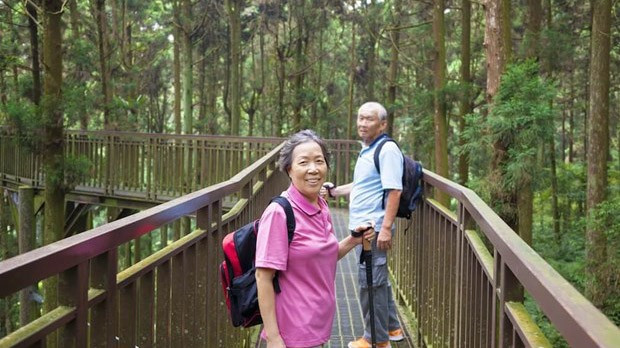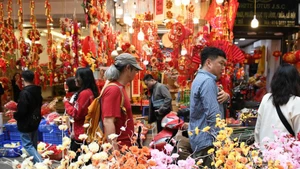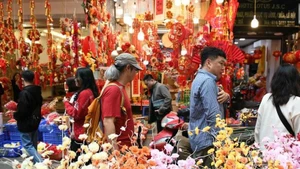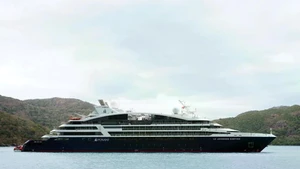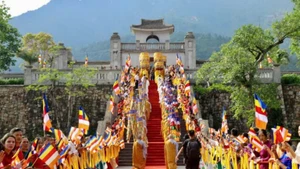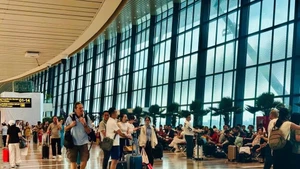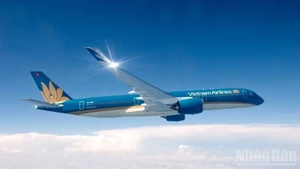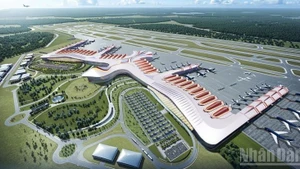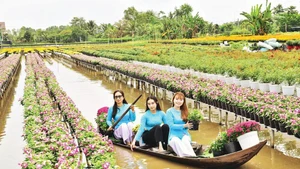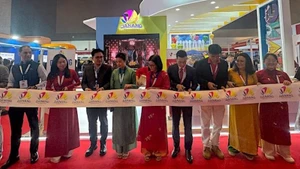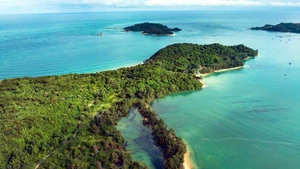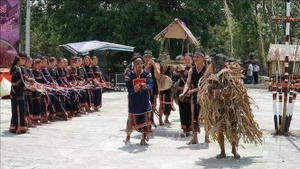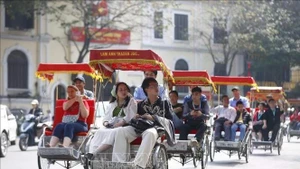This market segmentation is considered to be rich in development potential for Vietnamese tourism, especially for domestic tourism.
"Youth Ticket"
Many people liken travel as a "youth ticket".
Because when choosing the right journey, travel not only helps to improve the physical and mental health of the elderly, but also gives them the opportunity to exchange and make friends, helping them relieve the loneliness of old age.
Experiencing a long process of labour, most elderly people have a need for rest. This is also an object that does not suffer from many barriers in terms of time, economy, or children, so they have many conditions to participate in travel journeys at many times of the year.
However, according to the survey results of domestic tourists in 2019 of the General Department of Tourism, elderly visitors account for a relatively low proportion of the structure of domestic tourists. Specifically, guests aged 55-65 years old accounted for 4.53% and guests over 65 years old accounted for the lowest proportion at about 1.44%. Meanwhile, the number of elderly people in Vietnam (age 60 and older) currently accounts for 12.8% of the country's population.
This shows that the potential for tourism development for the elderly market is still very large. Moreover, this is a tourist that does not depend on the tourist season factor. Once satisfied with the service of the supplier, they will become a regular and close customer. Therefore, if there is a suitable product and attraction strategy, this will be an important segmentation that brings a relatively stable number of visitors to Vietnamese businesses and tourism.
In recent time, in order to catch up with this potential market, many travel agencies have built specialised tours for the elderly, focusing mainly on a few types of tourism such as resort tourism, spiritual tourism, medical tourism, cultural tourism, and historical tourism.
Recently, there have been more and more new forms of tourism to serve the elderly such as "slow" travel – spending more time to experience a place; and healthcare tourism – combining relaxation with meditation, yoga, massage, and traditional medicine therapy with expert supervision.
In fact, most elderly people are often afraid to travel abroad because of language barriers, health problems. Therefore, domestic tourism is considered the number one attractive market for elderly tourists. Suitable destinations are coastal resorts in Nha Trang, Phu Quoc, Con Dao, Vung Tau, Mui Ne, Quy Nhon, and Da Nang, or places with a mild and cool climate like Da Lat and Sa Pa.
Places with health care products such as hot minerals, mud baths, physiotherapy and nursing are also preferred by many elderly tourists.
Careful service delivery
According to experts, bringing the most comfortable, relaxed, and pleasant feeling to tourists in the travel journey is the number one goal when designing tours aimed at elderly visitors.
The research team of the Institute for Tourism Development Research has come to the conclusion that: The group of tourists aged 60-69 tends to travel more and more; most tend to consume green, sustainably and value environmentally friendly shopping behaviour. The elderly want to choose destinations that are not too crowded and want to be provided with full and clear information about the travel schedule at the destination. They prefer to choose thematic tours and packages with travel schedules suitable for their health and economic conditions, prioritise traveling with family, and want to go to destinations that are safe and have good service quality, a warm climate, and good accessibility.
On this basis, the research team noted that when building products and organising tours for the elderly, travel companies should recommend that tourists go to the hospital for a health check before travelling, prepare enough medicine, and follow the medical guidelines to ensure a safe travel.
Companies should: design appropriate travel schedules in the direction of a relaxing time to visit; increase rest time; and learn about the weather, climate, language, and culture at the destination in advance to provide reasonable advice for the elderly.
The research team also recommends choosing rooms on a low floor, avoiding letting elderly visitors go up and down by stairs or travel a lot by elevator, which is not good for the heart and blood pressure. In addition, travel companies need to pay attention to the diet of elderly guests so that they always ensure hygiene, limit grease and spices, and provide adequate nutrients.
The travel company can also prepare some nutritious food to timely replenish energy for the elderly during travel. In addition to knowledge about the culture and history of the destination, the tour guide also needs to be equipped with more knowledge about the psychology of the elderly, about medical treatment to solve arising situations and incidents.
Obviously, the more towards specific objects, the more professionalism in construction and tour organisation is required. Currently, many Vietnamese elderly people have approached and used smart mobile devices and interacted on social networks. Therefore, besides the traditional way of promoting tourism through newspapers, radio, television, organisations, associations, groups, clubs for the elderly, etc., it is possible to reach this target audience through social network channels.
In addition, it is possible to approach indirectly through the children and relatives of the elderly. The tourism and health sectors should "shake hands" with each other to implement a program to coordinate tourism activities with rehabilitation therapy for the elderly to enhance the value of tourism experiences for visitors.
